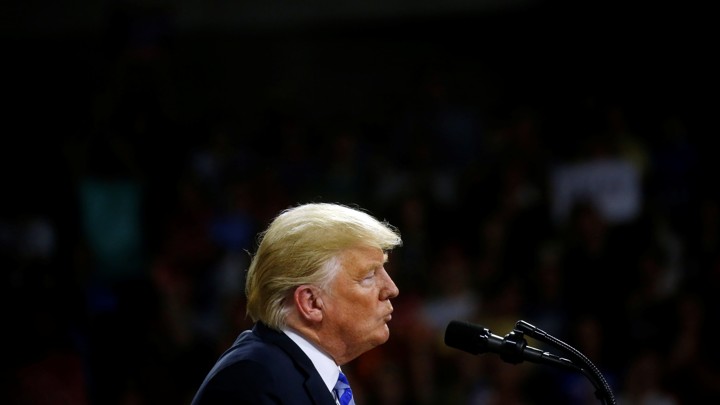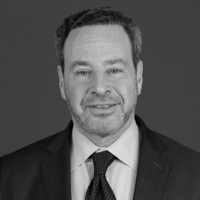The President Is a Crook
So now it’s confirmed, as a matter of legal record, that President Trump organized a scheme to violate federal election laws. He directed his longtime personal attorney to pay at least one woman for silence. That attorney got the money by lying to a bank to get a home equity line of credit.
It’s a matter of legal record, too, that Trump’s campaign chair was a huge-scale crook. Despite his desperate financial straits, he volunteered to work for Trump for free—and Trump accepted.
Become a member.
Join The Masthead, our new membership program, and get exclusive content—while supporting The Atlantic's future.
These two cases complete the beginnings of the story. They are not the story in full. The Cohen and Manafort cases are like the first rocky outcroppings a ship passes as it makes landfall. They are examples of the kind of people willing to work for Trump—and the way that those people carried on their business. They indicate why Trump’s son would write I love it when offered stolen information about the Clinton campaign by a purported representative of the Russian government, and how so much doubtful money flowed into the Trump Organization after 2006, and why Trump dares not publish his tax returns.
House Speaker Paul Ryan’s office replied to a query from The Washington Postabout the Cohen case: "We are aware of Mr. Cohen’s guilty plea to these serious charges. We will need more information than is currently available at this point.” Of course, a major priority of Ryan’s speakership has been to protect himself and his party against unearthing “more information” about Trump’s campaign, Trump’s business, and Trump’s finances. But despite his incuriosity, more information will almost certainly head his way, unless …
Unless President Trump somehow finds a way to shut it down.
It gets harder and harder to condemn an investigation as a witch hunt as it holds your closest associates accountable for major crimes. Who imagines that the Cohen plea and Manafort conviction represent the end of the trail? Pardons can protect the president’s associates from prison. But they can’t protect the president issuing the pardon—if anything they would worsen his exposure and enhance the impression of guilt.
Trump has apparently calculated that the cost of closing down the Mueller inquiry is greater than the cost of enduring it. That always looked a gamble against the odds. Now it looks a proven bad bet, and a bet that will only worsen over time.
Can Trump’s own affairs survive the scrutiny applied to Cohen’s and Manafort’s? Can his company’s? Can his family’s?
Before Trump entered politics, nobody ever bothered to look very hard into Trump’s affairs. Now they are looking. Trump imagined that holding the usual powers of the presidency would safeguard him. He has learned his mistake. In November 2017, he complained to a friendly radio interviewer:
The saddest thing is that because I'm the president of the United States, I am not supposed to be involved with the Justice Department. I am not supposed to be involved with the FBI.
Not supposed to be—but what if he concludes he has to be? As Trump comprehends his danger, will he really meekly submit?
Trump’s whole philosophy of life is of a kill-or-be-killed competition. It’s an old question: Is Trump an authoritarian or a crook? The answer is shaping up. Trump must be an authoritarian precisely because he is a crook. The country can have the rule of law, or it can keep the Trump presidency. Facing that choice, who doubts what Trump’s answer will be, or the answer of his supporters?
We want to hear what you think about this article. Submit a letter to the editor or write to letters@theatlantic.com.
DAVID FRUM is a senior editor at The Atlantic. In 2001–02, he was a speechwriter for President George W. Bush.


No comments:
Post a Comment